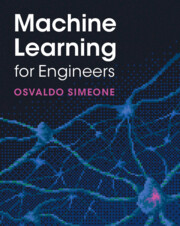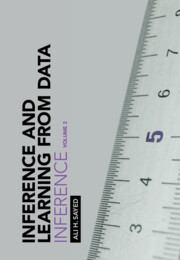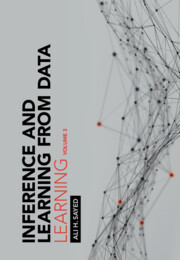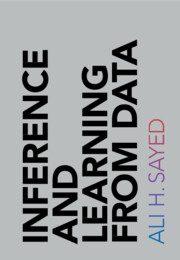Machine Learning for Engineers
This self-contained introduction to machine learning, designed from the start with engineers in mind, will equip students with everything they need to start applying machine learning principles and algorithms to real-world engineering problems. With a consistent emphasis on the connections between estimation, detection, information theory, and optimization, it includes: an accessible overview of the relationships between machine learning and signal processing, providing a solid foundation for further study; clear explanations of the differences between state-of-the-art techniques and more classical methods, equipping students with all the understanding they need to make informed technique choices; demonstration of the links between information-theoretical concepts and their practical engineering relevance; reproducible examples using Matlab, enabling hands-on student experimentation. Assuming only a basic understanding of probability and linear algebra, and accompanied by lecture slides and solutions for instructors, this is the ideal introduction to machine learning for engineering students of all disciplines.
- A book on machine learning written for engineers, by an engineer
- An accessible text with a unified information-theoretic framework
- Highlights connections between machine learning and estimation, detection, information theory, and optimization
- Offers concise but extensive coverage of state-of-the-art topics with simple, reproducible examples
- Derives modern methods, such as generative adversarial networks, from first principles, revealing their connection with standard techniques
- Divided into useful parts, allowing the book easily to be mapped to either a one- or a two-semester course
Product details
No date availableHardback
9781316512821
450 pages
261 × 209 × 38 mm
1.47kg
Table of Contents
- Part I. Introduction and Background:
- 1. When and how to use machine learning
- 2. Background. Part II. Fundamental Concepts and Algorithms:
- 3. Inference, or model-driven prediction
- 4. Supervised learning: getting started
- 5. Optimization for machine learning
- 6. Supervised learning: beyond least squares
- 7: Unsupervised learning. Part III. Advanced Tools and Algorithms:
- 8. Statistical learning theory
- 9. Exponential family of distributions
- 10. Variational inference and variational expectation maximization
- 11. Information-theoretic inference and learning
- 12. Bayesian learning. Part IV. Beyond Centralized Single-Task Learning:
- 13. Transfer learning, multi-task learning, continual learning, and meta-learning
- 14. Federated learning. Part V. Epilogue:
- 15. Beyond this book.






